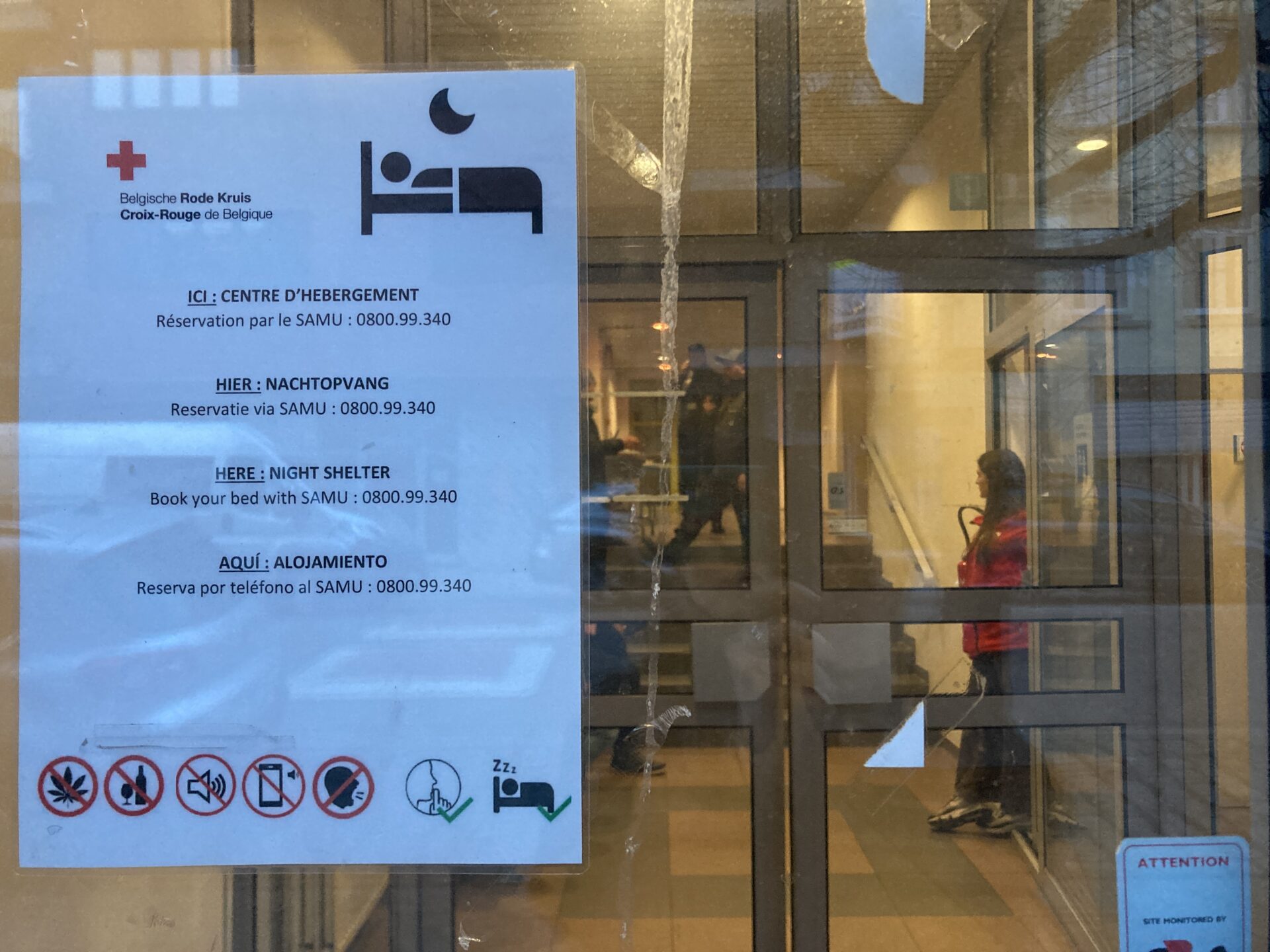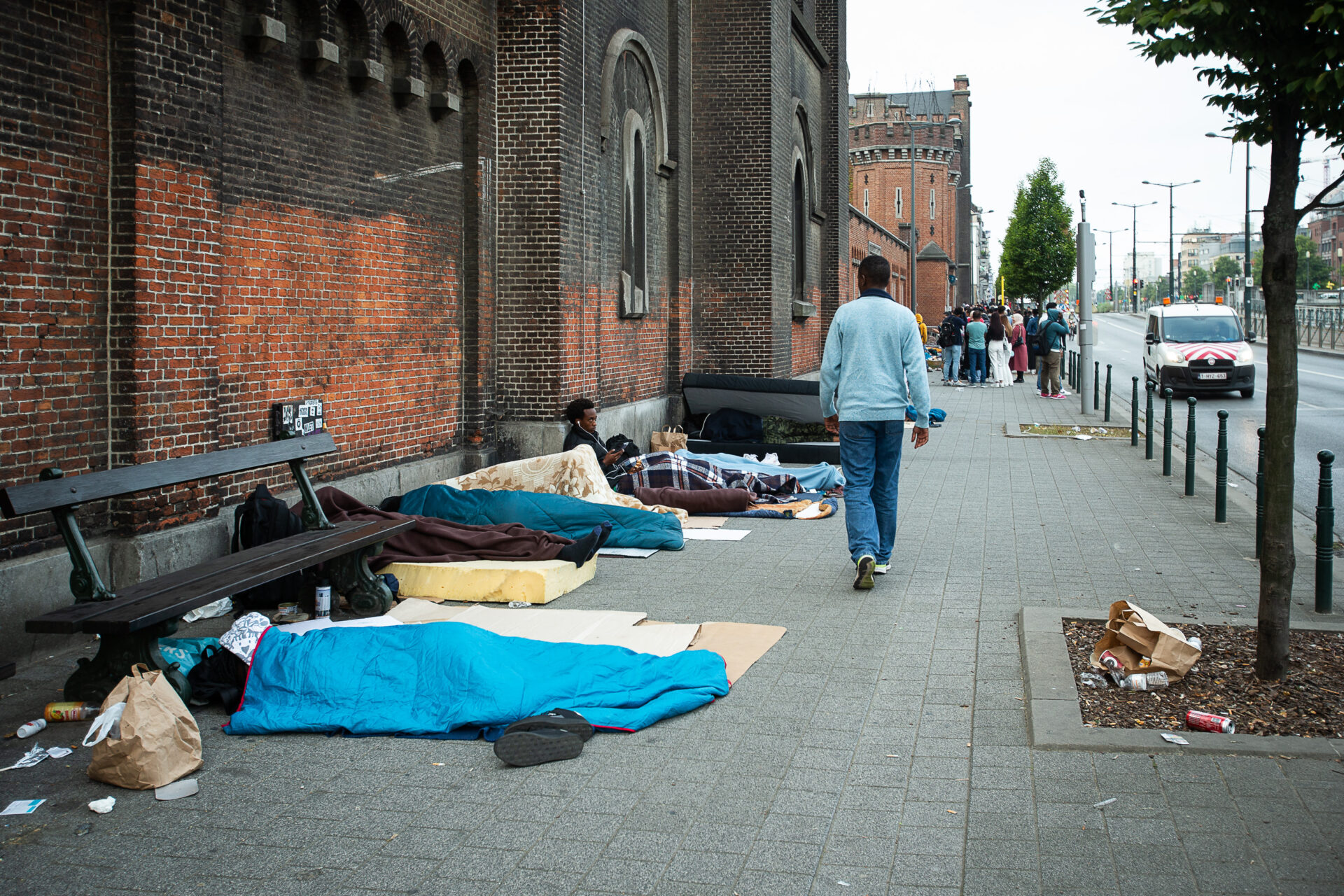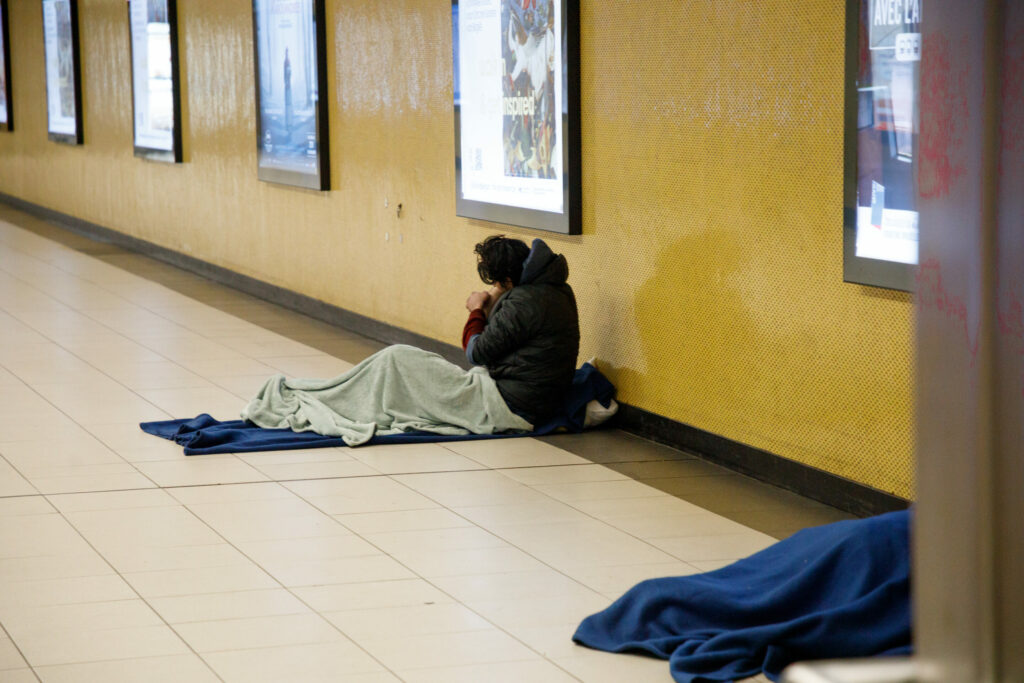Despite ongoing and unprecedented efforts to tackle rising homelessness in the Brussels-Capital Region, a recent count confirmed the "worrying reality" that the number of people on the city's streets is on the rise.
The number of homeless and poorly-housed people in Brussels has risen to nearly 10,000 – an increase of nearly 25% in two years, confirming an upward trend that has been unabated since 2008. Of those people, nearly 1,000 have nowhere to go and are effectively living on the streets.
"This count is not just a figure: it is a call to strengthen our social and housing policies. The results confirm the relevance of this differentiated approach, with responses tailored to the specific needs of each group," said outgoing Brussels Minister for Social Action and Public Health Alain Maron (Ecolo).
"They also confirm the need for coordinated, long-term structural actions adapted to the challenges and to be taken by both the Region and the Federal Government, within their respective competences," he added.
Maron stressed that the results of the Bruss'help census are essential tools for understanding the evolution of homelessness, refining diagnoses and guiding public policies.
A structured policy, a doubled budget
Since 2019, the Brussels Government's budget for combating homelessness has more than doubled – going from €34.5 million to €73 million.
This increase has allowed help organisations in the Capital Region to diversify their services (meaning that organisations can respond to a greater diversity of people's profiles) and significantly increase their capacity to shelter, house and support homeless or poorly housed people.
"The results of the count confirm the relevance of this differentiated approach, with responses tailored to the specific needs of each group," said Bruss'help in a press release. "They also reinforce the need for coordinated, long-term and structural action to meet the challenges posed."

Red Cross emergency accommodation centre for homeless people in Anderlecht, Monday 08 January 2024. Credit: Belga/Lou Lampaert
The Capital Region has also invested heavily in supporting people on their way to re-housing. The Housing First programme was expanded from 104 to 300 places between 2019 and 2023. Home support has also been stepped up: 920 people now receive support, up from 660 in 2019. More than 250 individuals and families have been re-housed, and another 57 homes have been renovated as part of innovative local projects.
Additionally, a number of targeted structures have been set up: shelters for single-parent families, female victims of violence, young LGBTQ+ people and two day centres for homeless youth and women. Temporary housing for social purposes has also made it possible to open more than 750 places for people who are often excluded from traditional services.
A centralised logistics platform now supports resettlement. Support for the creation of sustainable housing, through operators such as Ilot, has been stepped up. Finally, coordination of the sector is structured around Bruss'help, with a focus on preventing housing loss, integrated into regional social policies.
'Coherent asylum and migration policy' needed
Yet, the rising homelessness figures clearly show that these efforts are not sufficient. Bruss'help stressed that "growing budgetary mobilisation reflects a political will" to respond more effectively to social emergencies, but that the "structural challenges remain significant."
Therefore, the sector stressed that efforts must continue – something that Maron actively supports. In the short and medium term, he wants to strengthen measures to prevent housing losses, in particular by increasing counselling capacity and measures to keep people in their homes.
The number of homes available for Housing First and people leaving care should also be increased, through more support for innovative projects. "The outgoing Brussels Government has set mandatory percentages for allocating social housing to homeless people," Maron said.

Dozens of asylum seekers waiting at the entrance of the Fedasil registration centre Petit Chateau in Brussels, August 2022. Credit: Belga/James Arthur Gekiere
Importantly, he stressed the need for a "coherent federal asylum and migration policy." A large proportion of people who do not receive support from Belgium's agency for asylum reception (Fedasil) end up on the streets. "We regret that the Federal 'Arizona' agreement does not go in this direction at all."
A regularisation process for undocumented migrants living in Brussels should also be implemented, starting with those trained or qualified in professions that are in short supply. "Our social cohesion and effectiveness in the fight against precarity depend on it."
In the longer term, the aim is to sustainably reduce homelessness by 2030. Since last year, Bruss'help and the sector as a whole have been supported by a Master Plan. This joint roadmap aims to sustainably reduce homelessness by 2030, through an approach based on "prevention, rapid intervention, tailored support and direct involvement of stakeholders."

